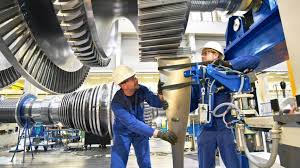Being numerate and computer literate, mechanical engineering graduates are also suited to careers in finance and management
Job options
Jobs directly related to your degree include:
- Aerospace engineer
- Automotive engineer
- CAD technician
- Contracting civil engineer
- Control and instrumentation engineer
- Maintenance engineer
- Mechanical engineer
- Nuclear engineer
Jobs where your degree would be useful include:
- Acoustic consultant
- Clinical technologist
- Corporate investment banker
- Land-based engineer
- Mining engineer
- Patent attorney
- Production manager
- Technical sales engineer
- Water engineer
Work experience
Employers value pre-entry work experience and especially that relating to the career you'd like to pursue. Some degree courses offer a year in industry, which is valuable as this will help you develop your skills and commercial awareness.
If you'd like to get into engineering and your course doesn't offer a placement, try to secure one yourself during the summer holidays. Getting in touch directly with large engineering employers will show you take your work seriously. The work is often hands-on and provides a good insight into the engineering environment. It can also be a good idea to shadow different engineers to help you decide which area you'd like to work in.
Typical employers
Mechanical engineering deals with the design, development, installation, operation and maintenance of anything that has moving parts. Because of this, you'll find relevant opportunities in a range of sectors, including:
- aerospace engineering
- automotive engineering
- construction
- energy
- manufacturing
- medicine
- railway engineering
- sport.
Skills for your CV
A mechanical engineering degree is a combination of maths, science, technology, business and management. Courses are designed to ensure graduates are:
- able to solve problems using both logic and creative and innovative approaches
- numerate and highly computer literate, with excellent analytical skills
- able to plan and prioritise, work to deadlines and under pressure
- cost/value-conscious and aware of the necessary social, cultural, environmental, health and safety, and wider professional responsibilities
- capable of careful attention to detail, exercising good judgement and accepting responsibility
- able to communicate with others and work in multidisciplinary teams.








